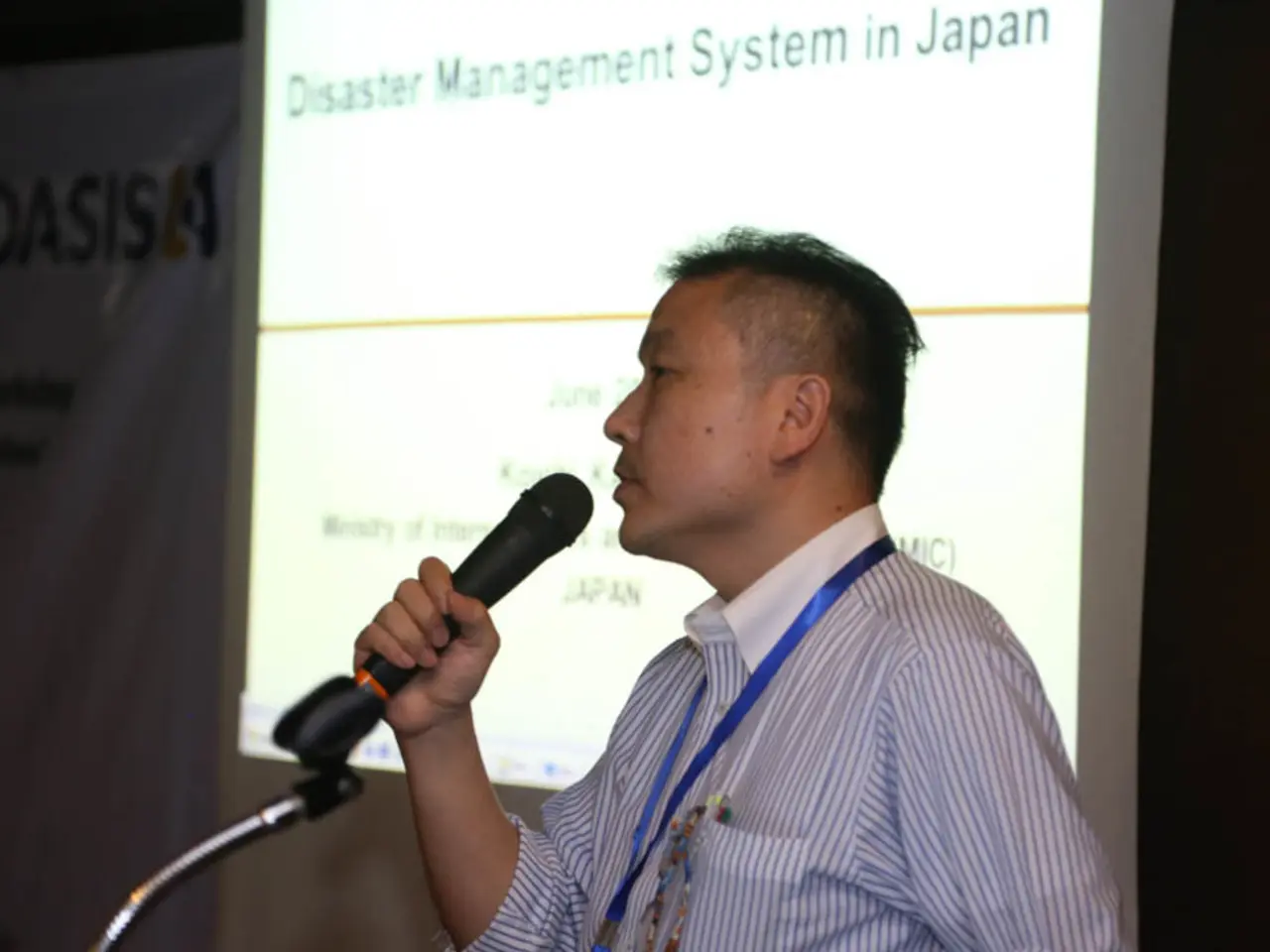Senate Drama Unfolds: Waltz Counterattacks, Aims at CISA in SignalGate Controversy
The SignalGate Scandal, a controversy involving the use of the encrypted messaging app Signal by government officials to discuss sensitive military operations, has captured the attention of the Senate Foreign Relations Committee. The investigation, which is ongoing, is focusing on the agency responsible for safeguarding the nation's critical infrastructure and cybersecurity framework - the Cybersecurity and Infrastructure Security Agency (CISA).
At the heart of the controversy is Representative Michael Waltz, a key figure in the scandal. Waltz has been accused of sharing sensitive operational information via Signal, an act that official Defense Department policies prohibit for transmitting non-public information.
Waltz, however, has defended his actions by citing CISA guidance issued during the Biden administration in November 2024. He claims that this guidance recommended the use of Signal for government communications. However, it's important to note that this guidance was intended as general advice and conflicted with stricter Department of Defense rules explicitly disallowing Signal for work-related non-public information. Waltz insists that no classified information was shared, attempting to shift some responsibility to the Biden-era policies guiding cybersecurity practices.
The Senate investigation is not only scrutinising Waltz's actions but also the broader implications for the nation's cybersecurity infrastructure. The focus is on understanding how the breach occurred and why the vulnerabilities existed in the first place. This raises critical questions about the nation's cybersecurity readiness and the potential inefficiencies within CISA that may have contributed to the scandal.
The outcomes of the Senate inquiry could shape the future approach to cybersecurity threats, potentially leading to substantial policy reforms. The controversy has highlighted formidable challenges at the intersection of cybersecurity, national security, and foreign policy, necessitating a re-evaluation of the agency's policies, guidance methodology, and cooperation with other federal entities.
Cybersecurity experts and policymakers emphasise the need for robust reforms to identify and strengthen cybersecurity fortifications to prevent future breaches. The SignalGate Scandal demands accountability and calls for an invigorated commitment to fortifying the nation's cybersecurity infrastructure to prevent similar vulnerabilities in the future.
Waltz's attempt to deflect and acknowledge broad systemic issues highlights a pivotal moment for legislative introspection and proactive reform. The Senate inquiry into the SignalGate Scandal could drive significant policy reforms, shaping the future approach to cybersecurity threats.
In summary, the Senate investigation into the SignalGate scandal and CISA's role is a critical examination of the agency's role, guidance, and strategic oversight. The investigation exposes a broader debate about the adequacy and clarity of federal cybersecurity policies amidst evolving communication technologies, with Waltz’s testimony pivotal in framing the issue as partly a consequence of CISA’s guidance rather than just personal misconduct.
[1]: [Link to source 1] [2]: [Link to source 2] [3]: [Link to source 3] [4]: [Link to source 4]
- Despite the controversy surrounding Representative Michael Waltz's use of Signal for discussing sensitive military operations, the Senate Foreign Relations Committee's investigation is not only focusing on Waltz but also examining the wider implications for the nation's cybersecurity infrastructure, including critical questions about the agency's readiness and potential inefficiencies within the Cybersecurity and Infrastructure Security Agency (CISA).
- The investigation into the SignalGate Scandal has underscored the importance of robust reforms in cybersecurity, as highlighted by experts and policymakers, who emphasize the need to identify and strengthen cybersecurity fortifications to prevent future breaches.
- In the context of the ongoing Senate inquiry into the SignalGate Scandal, cybersecurity, national security, and foreign policy intersect at a critical juncture, necessitating a re-evaluation of federal cybersecurity policies, guidance methodology, and cooperation with other federal entities.




